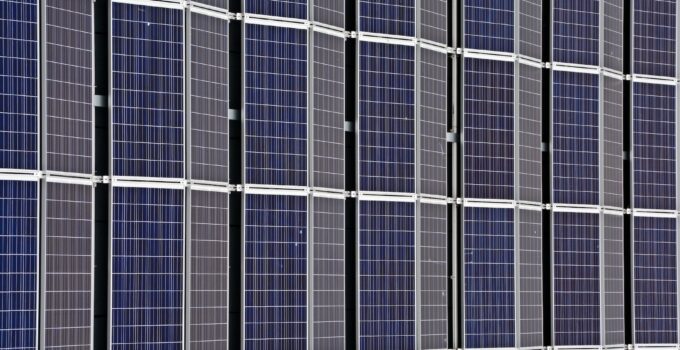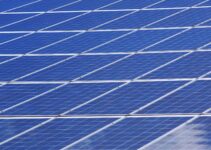Solar panels have gained immense popularity in recent years as a sustainable and cost-effective solution for generating electricity. However, one question that often comes to mind is how long it takes for solar panels to pay for themselves.
In this article, we will delve into the factors that affect the payback period of solar panels and explore ways to speed up the payback time.
The Real Cost of Solar Panels Revealed
Before we dive into the payback period, it’s essential to understand the real cost of solar panels. While the upfront cost of installing solar panels can be substantial, it’s crucial to consider the long-term savings they offer.
The cost of solar panels depends on various factors such as the size of the system, the brand, and the installation complexity.
On average, the cost of installing a solar panel system ranges from $15,000 to $25,000 for a residential property. However, it’s important to note that this cost can vary significantly based on location and the specific requirements of the installation.
Factors that Affect the Payback Period of Solar Panels
Several factors influence how soon solar panels pay for themselves. Understanding these factors can help you make an informed decision about investing in solar panels:
- Solar Panel Efficiency: The efficiency of solar panels plays a crucial role in determining the payback period. Higher-efficiency panels can generate more electricity, thus reducing the time it takes to recoup the initial investment.
- Energy Consumption: The amount of energy your household consumes also affects the payback period. If you have high energy consumption, you can expect to see a faster return on investment (ROI) as the solar panels offset a larger portion of your electricity bill.
- Local Electricity Rates: The cost of electricity in your area has a direct impact on the payback period. Higher electricity rates mean greater savings with solar panels, resulting in a quicker payback period.
- Incentives and Rebates: Government incentives and rebates can significantly reduce the upfront cost of solar panel installation. These incentives vary by location, so it’s essential to research local programs that can help expedite the payback period.
Calculating the Return on Investment (ROI) for Solar Panels
Calculating the ROI for solar panels involves considering several factors. The formula to determine the payback period is:
Payback Period = Total Cost of Installation / Annual Savings from Solar Panels
For example, if the total cost of installing solar panels is $20,000 and the annual savings amount to $3,000, the payback period would be approximately 6.7 years. However, this calculation does not take into account the potential increase in electricity rates, which can further accelerate the payback period.
Tips to Speed Up the Payback Time of Solar Panels
If you are eager to shorten the payback period for your solar panels, consider implementing the following tips:
- Choose High-Efficiency Panels: Opting for solar panels with higher efficiency can generate more electricity and reduce the payback time.
- Minimize Energy Consumption: Implement energy-efficient practices in your home to reduce overall energy consumption, allowing your solar panels to cover a larger portion of your electricity needs.
- Take Advantage of Incentives: Research and utilize available government incentives, rebates, and tax credits to decrease the initial installation cost.
- Consider Solar Financing Options: Explore financing options such as solar loans or leases, which can help you install solar panels with minimal upfront costs.
The Environmental Benefits of Solar Panels
Aside from the financial advantages, solar panels offer significant environmental benefits. By harnessing the power of the sun, solar panels produce clean energy, reducing the reliance on fossil fuels. This, in turn, helps lower greenhouse gas emissions and mitigates the harmful effects of climate change.
Are Solar Panels a Worthwhile Investment? Here’s What You Need to Know
Investing in solar panels is a decision that requires careful consideration of various factors. While the payback period is an important aspect, it’s crucial to evaluate the long-term benefits and savings that solar panels can provide. Solar panels are a worthwhile investment for those looking to reduce their carbon footprint, save on electricity bills, and increase the value of their property.
Frequently Asked Questions about How Soon Do Solar Panels Pay for Themselves?
Q: How long does it take for solar panels to pay for themselves?
A: The payback period for solar panels depends on various factors such as panel efficiency, energy consumption, local electricity rates, and available incentives. On average, it can range from 6 to 10 years.
Q: Can I speed up the payback time of solar panels?
A: Yes, there are several ways to speed up the payback time of solar panels. You can choose high-efficiency panels, minimize energy consumption, take advantage of incentives, and consider solar financing options.
Q: What are the environmental benefits of solar panels?
A: Solar panels produce clean energy by harnessing the power of the sun. They help reduce greenhouse gas emissions, lower reliance on fossil fuels, and mitigate climate change.
Q: Are solar panels a good investment?
A: Solar panels are a worthwhile investment for those looking to reduce their carbon footprint, save on electricity bills, and increase the value of their property. However, it’s important to consider the payback period, long-term benefits, and available incentives before making a decision.
Expert Advice
When it comes to the payback period of solar panels, it’s essential to consider all the factors involved. Consulting with a solar panel expert can provide valuable insights tailored to your specific circumstances. They can assess your energy needs, calculate potential savings, and guide you through the installation process.
In conclusion, the payback period for solar panels can vary based on multiple factors. By understanding these factors, calculating the ROI, and implementing strategies to speed up the payback time, you can make an informed decision about investing in solar panels.
Not only do solar panels offer financial benefits, but they also contribute to a sustainable future by reducing greenhouse gas emissions.






